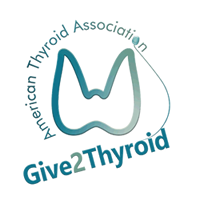A control group of Finnish residents from the comprehensive national Population Center was formed by random selection of three age- and sex-matched subjects (for each patient) who were alive when the hyperthyroid patients were treated. A total 4334 were in the surgery group (615 men and 3719 women) and 1814 in the radioactive iodine therapy group (329 men and 1485 women). The cause of the hyperthyroidism was Graves’ disease in 50% of the patients, toxic multinodular goiter in 33% of patients and “unspecified” in 17% of patients. Men and women were of similar ages at the time of treatment for hyperthyroidism.
About 2 years before patients were treated for hyperthyroidism, their hospitalization rates for heart disease began to increase and was 1.6 times more common than in the control patients. Hypertension, atrial fibrillation, coronary artery disease, strokes, heart failure, and valvular disease and cardiomyopathies all were more common in the hyperthyroid patients with atrial fibrillation and other arrhythmias the most common.
There was no difference between surgery and radioactive iodine therapy on subsequent hospitalizations for any or all categories of heart disease providing that radioactive iodine therapy was followed by hypothyroidism. In contrast, if radioactive iodine therapy did not result in hypothyroidism, radioactive iodine therapy was associated with a greater risk of subsequent hospitalization for arrhythmias, including atrial fibrillation, and heart failure.
Death due to heart disease was increased in hyperthyroidism patients treated with radioactive iodine therapy as compared to those treated with surgery, but this difference went away of the patients who did not become hypothyroid after radioactive iodine therapy were removed from the analysis. Death was similar in patients with toxic multinodular goiter as compared to those with Graves’ disease.
WHAT ARE THE IMPLICATIONS OF THIS STUDY?
This study shows that the rates of hospitalization for heart disease are increased in patients with hyperthyroidism. These rates were decreased after surgery or radioactive iodine therapy that produced hypothyroidism but persisted at the higher rate in patients treated with radioactive iodine therapy who did not develop hypothyroidism. Death also was increased on patients treated with radioactive iodine therapy who did not develop hypothyroidism but was not increased in patients treated with surgery or patients treated with radioactive iodine therapy that did produce hypothyroidism. These data suggest that the goal of radioactive iodine therapy for hyperthyroidism should be to produce hypothyroidism.
— Alan P. Farwell, MD, FACE




